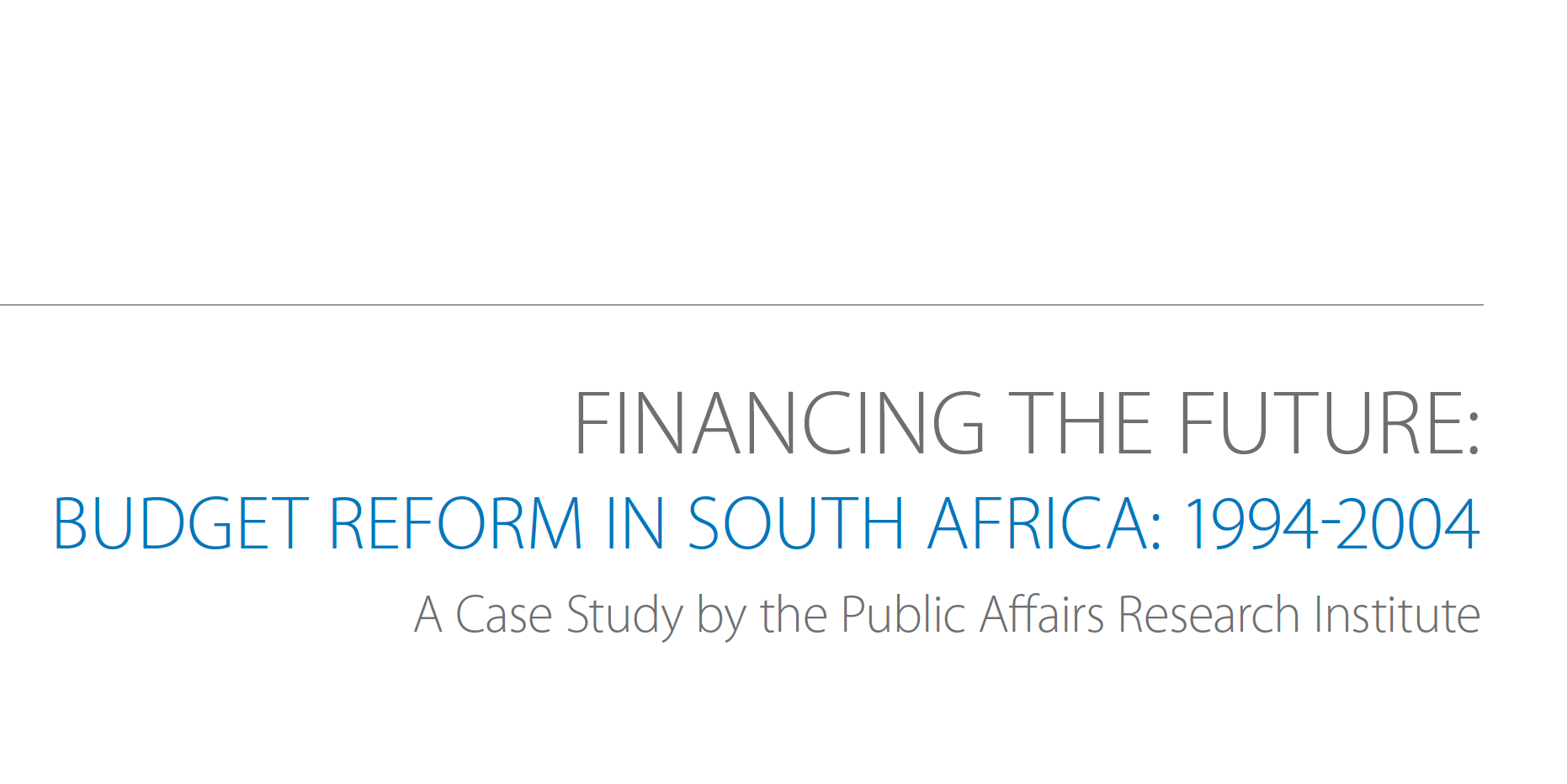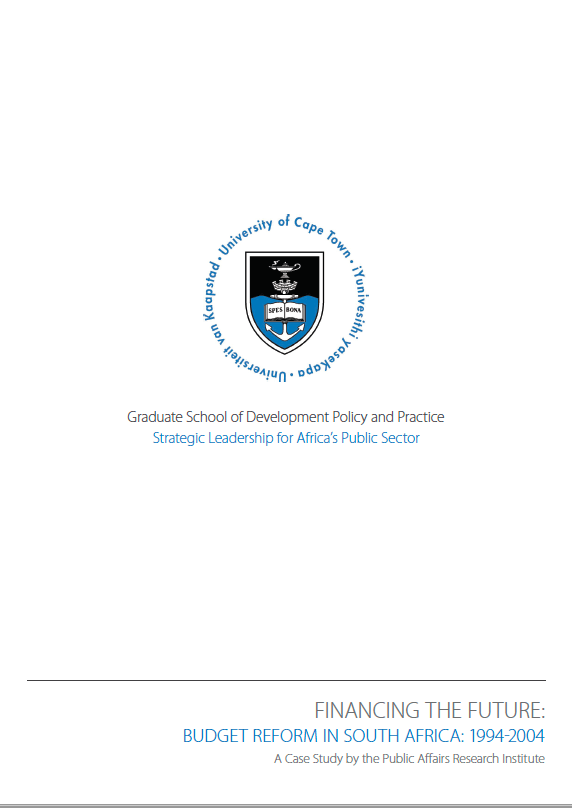By Joel Pearson, Sarita Pillay and Tracy Ledger, for the University of Cape Town’s Graduate School of Development Policy and Practice
The euphoria surrounding the historic elections of 1994 was well-justified, but it could not hide the considerable socio-economic challenges that the
new ANC-led government faced in almost all areas: South Africa’s economy was in decline; it had one of the most unequal distributions of income and wealth in the world; and government finances were in a parlous state. In just the 1992/93 financial year net borrowing (in the main budget) was almost 9% of GDP (Folscher and Cole, 2006). Expenditure controls were poor and tax collection was weak, contributing directly to the deterioration in government’s financial position. National debt levels were rising rapidly, with an associated ballooning interest bill, which the country could ill afford. These debt problems were even worse in the notionally sovereign TBVC states (“independent” bantustans which were an integral part of the apartheid strategy of keeping the different racial groups separate), which would now be re-incorporated into South Africa and thus its national budget and debt. […]



